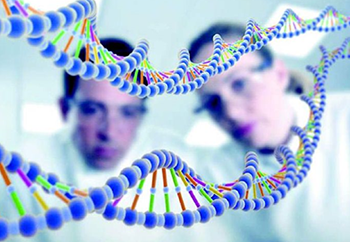
Scientists have discovered how to edit DNA to repair 'broken genes' to cure incurable diseases - and potentially extend human lifespan.
科学家已经发现如何通过编辑DNA来修复“受损基因”,从而治愈绝症并有可能延长人类寿命。
Until now, it has not been possible to alter genes in the brain, heart, liver and eyes - the root of many debilitating illnesses.
目前为止人们还无法改变人体大脑、心脏、肝脏和眼睛的基因,而这正是许多致命疾病的根源。
Since the cells in these vital organs tend not to divide, it is difficult to gain access to make changes.
由于这些重要器官的细胞往往不能分裂,因此对其几乎无计可施。
However, researchers at the Salk Institute claim to have landed on 'the holy grail of gene editing', which can delicately and smoothly cut through DNA.
然而,索尔克研究所的研究人员声称,他们已经发现了基因编辑的法宝,可以准确并顺利地切断DNA。
So far the technique, called HITI, has been used to successfully restore blindness in lab mice.
这种技术被称为HITI,目前已经成功应用于失明的试验小鼠身上。
Lead researcher Professor Juan Carlos Izpisua Belmonte insists that is nothing compared to the changes the technique could have in the decades to come.
该研究领头人安.卡洛斯.依思皮舒.贝尔蒙特教授认为,这项技术在未来几十年将带来无可比拟的改变。
'We are very excited by the technology we discovered because it's something that could not be done before,' Dr Belmonte said.
贝尔蒙特教授表示,“发现这项技术让我们感到非常兴奋,因为这是史无前例的。”
'For the first time, we can enter into cells that do not divide and modify the DNA at will. The possible applications of this discovery are vast.'
“人类首次攻入了不能分裂的细胞,并随意修改其DNA。这一发现具有巨大的实用价值。”
News of the discovery comes a day after Chinese scientists successfully tested a similar DNA-modifying technique, known as CRISPR.
该发现公布前一天,中国科学家成功测试了一种类似的DNA改造技术,被称为CRISPR。
To date, CRISPR has been the most effective method for dividing cells in large organs like the skin or the gut.
对皮肤、肠道等较大的器官来说,CRISPR是迄今为止最有效的细胞再生方法。












